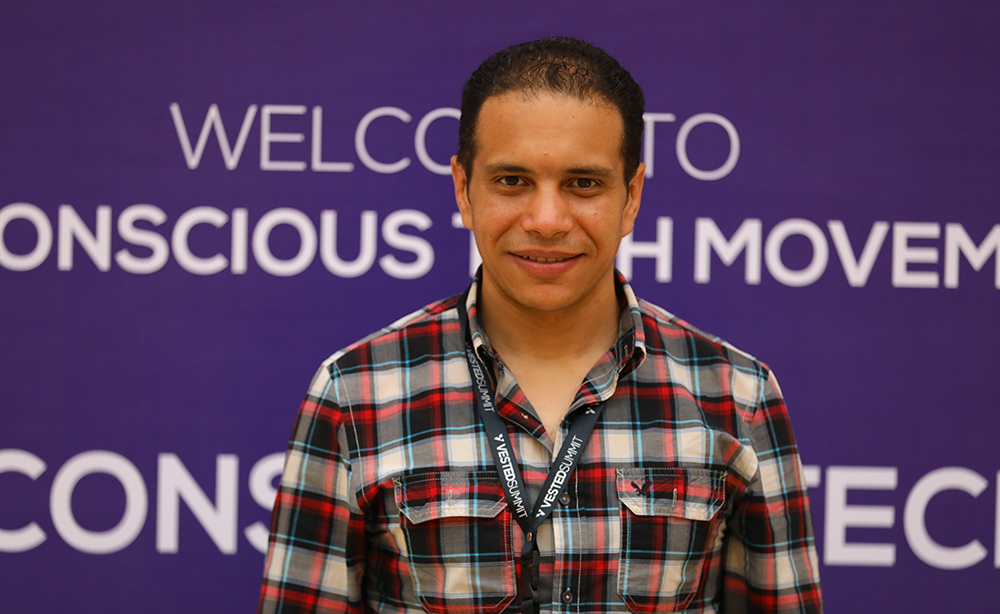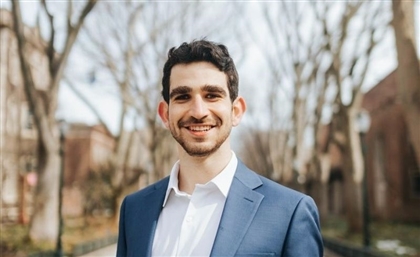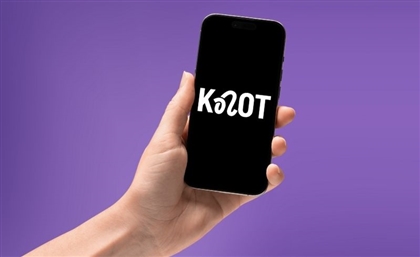Red Cab, The Blockchain Startup that Has Just Announced Egypt's Initial Coin Offering (ICO)
A car-hailing startup that a monetises through tailored Geo-ads? We talk to Egyptian entrepreneur Waleed El Gendy on how blockchain can create a ride-sharing community in Hurghada.

Egypt’s coastal town of El Gouna looked as vibrant as ever, brimming with entrepreneurs and makers as they gathered at the TU Berlin campus for the Vested Summit last May. As we walked towards the newly launched co-working hub G Space, a pink Uber tuk-tuk swiftly rode by. In this seaside town, dotted with pastel-hued houses and bougainvilleas all around, transportation takes on an entirely different shape.
“In a country like Egypt, there is huge potential in the transportation business, but it’s dominated by giants,” says Walid El Gendy, pointing out the Red Sea area as a new hub for innovation in transportation. Indeed, it was in the nearby city of Hurghada that the entrepreneur created Red Cab Egypt, a car hailing service that uses blockchain technology to allow customers to transact through tokens. “We launched in 2017 as peer-to-peer transportation, but we asked ourselves: how can we provide something new to the market?” He says, as he recalls the inception of the company, just a day before publicly announcing their Initial Coin Offering (ICO) - a type of crowdfunding based on offering investors cryptocurrency in the form of tokens.
“We studied the market for a year and saw huge potential in the blockchain,” El Gendy explains. “First, it hasn't been penetrated yet; there is no transportation startup that actually entered into the blockchain field. The question was how we can tailor a business model that suits the blockchain, make the community grow, create a community and get profitability,” he says, triggering a slew of different questions.
So how did you launch it?
We decided to build what we call network dominance. What's the network dominance? It’s the balance between supply and demand. What's happening now in the market is that car hailing services buy the supply and then the demand. So they give coupons for the customers to use the app and give free rides, and they give guarantees and bonuses for the drivers, which at the end of the day cost the business money. But it is the customer who pays for all these expenses at the end of the day. In this business, it is ‘the chicken and the egg’ situation, because you don’t know what comes first: getting the customers and then getting the rider, or getting the drivers and then getting the customers. So what we have tailored is the network dominance; getting the supply and demand at the same time. We have a system of tokens, whereby drivers earn more tokens the more miles they go, and customers get tokens are they refer to people; this is how you earn tokens - which we call Red Sea Tokens - in this community.
But how are drivers getting rides without customers?
The existing business model is that when you use the app you get guarantees - a specific amount of money that you take just for opening the app. For the driver, as long as you're using the app, you are actually generating tokens. And for the customers, as long as you are referring people, you are getting tokens - which are like bonuses or points. So you're filling in your wallet once you refer people, and as more people get into the network and grow the community, you're getting more money. In the case of drivers, the more you use the app and the more you use more miles, the more you get money. What we have created is the community creates the supply and demand, because it's a peer-to-peer transportation solution. We have decided to create the platform for people to create community and then monetise from the data.
The ride-hailing company announced their Initial Coin Offering at the Vested Summit last May.
And what do you use the data for?
Advertising, because you have a lot of data, such as people’s routes and preferences; so now you get another party to pay, which is businesses. If you're a retailer like a coffee shop, and definitely know that that guy is actually taking that path everyday going to work, definitely he needs coffee. So identifying the pattern of the guy who orders the same trip everyday will push specific ads that will help the business without hurting the customer.
So people pay with tokens instead of money?
In our model, they pay tokens, because this is what gives the power for the blockchain business. It is decentralised, and that’s the power of blockchain in the first place; in the second place, it’s about building communities. That’s why our business model is based on building communities and making it grow through empowering the technology and funding it through businesses, not customers.
So you are you using smart wallets? What's the technology behind it?
Smart contracts. We use Ethereum. This is a utility token; it's like a points system.
If I'm a first time user; how do I get points so I can use the app?
You will buy the tokens. This is what creates the demand of the token. And if you are a driver and you want to earn some tokens, you transfer a person from one place to another or just open the app.
It's a very sophisticated technical process; we’ve spent a year doing research, focus groups, digging deeper into the technology of blockchain and understanding the needs of the customer. Now, the customer gets upset when you put a price surge because it's raining or because there is traffic jam. We don’t want to monetise from people’s suffering.
On the other hand, our business model aims to contribute to the environment and the community by getting people to share rides, lowering the levels of carbon emissions. Studies have proven that the sharing economy does not only impact people's profitability but also their behaviour, supporting each other getting to a healthy community. But again, a lot of businesses have been created for a better cause and then turned to a harmful cause. This is the opportunity that we actually are looking for, and this is how we are seeing that business into the future.
And how many drivers do you have?
We have more than 50 drivers and they are growing. Now we're actually doing good as operation and we are waiting for our shift to the blockchain and web 3.0. We want to take a seat in the future early. From my point of view, this is how I can see Egyptians because we're smart, I mean we are not looking into replicating business models because this is easy for a lot of people. This is our approach, this is our vision. to create something new from that land.
Main photo by @MO4Network's #MO4Productions.
Photographer: Ashraf Hamed.
- Previous Article Egyptian Startup Beach Safer Competes Globally At Imagine Cup 2018
- Next Article 3 Agritech Startups Creating a Farming Revolution in Egypt
Trending This Month
-
Jan 19, 2026




















